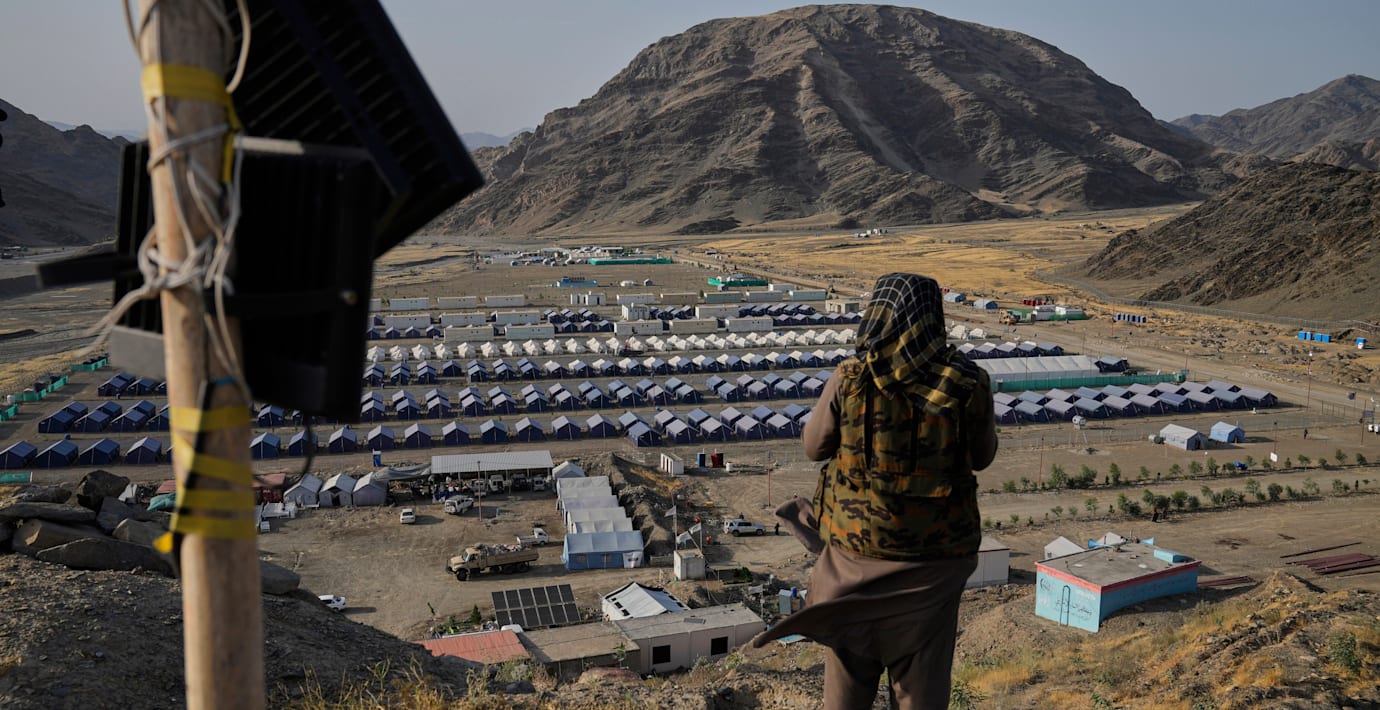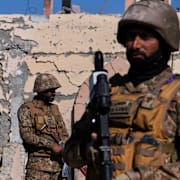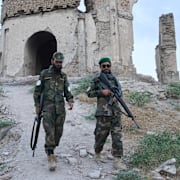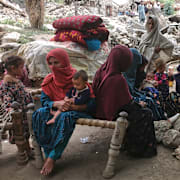
20 döda – Talibanerna i Pakistan tar på sig attacker
Talibanrörelsen i Pakistan har tagit på sig ansvaret för en rad attacker som på fredagen dödade 20 medlemmar av säkerhetstjänsten och tre civila i landets norra delar. Det skriver AFP.
Attackerna inleddes timmar efter att Talibanrörelsen i Afghanistan anklagat Pakistan för attacker mot bland annat Kabul.
Talibanrörelsen i Pakistan är separat från den i grannlandet, men de båda grupperna anses vara närstående. Pakistans regering har återkommande anklagat Kabul för att skydda terrorister.
bakgrund
Talibanrörelsen i Pakistan
Wikipedia (en)
The Pakistani Taliban, also known as the Tehreek-e-Taliban Pakistan (TTP), is a Deobandi jihadist Pashtun nationalist militant group operating along the Afghan–Pakistani border that is an internationally designated terrorist group. Formed in 2007 by Baitullah Mehsud, its current leader is Noor Wali Mehsud, who has publicly pledged allegiance to the Taliban (Islamic Emirate of Afghanistan). The Pakistani Taliban share similar ideologies with the Afghan Taliban and have assisted them in the 2001–2021 war, but the two groups have separate operation and command structures.
The TTP is known for their anti-Shia sentiment and suicide bombings. Most Islamist groups in Pakistan coalesce under the TTP. Among the stated objectives of TTP is resistance against the Pakistani state. The TTP's aim is to overthrow the government of Pakistan by waging a terrorist campaign against the Pakistan armed forces and the state. The TTP has also used Pashtun-centric narratives and often incited violence against non-Pashtun ethnicities such as Hazaras. The TTP depends on the tribal belt along the Afghanistan–Pakistan border, from which it draws its recruits. The TTP receives ideological guidance from and maintains ties with al-Qaeda. After the Pakistani military operations in Khyber Pakhtunkhwa, some of the TTP militants escaped from Pakistan to Afghanistan, where some of them joined Islamic State – Khorasan Province, while others remained part of the TTP. As of 2019, there are around 3,000 to 4,000 TTP militants in Afghanistan, according to a United States Department of Defense report. Between July and November 2020, the Amjad Farouqi group, one faction of the Lashkar-e-Jhangvi, the Musa Shaheed Karwan group, Mehsud factions of the TTP, Mohmand Taliban, Bajaur Taliban, Jamaat-ul-Ahrar, and Hizb-ul-Ahrar merged with TTP. This reorganization made TTP more deadly and led to increased attacks.
In 2020, after years of factionalism and infighting, the TTP under the leadership of Noor Wali Mehsud underwent reorganization and reunification. Mehsud has essentially steered the TTP in a new direction, sparing civilians and ordering assaults only on security and law enforcement personnel, in an attempt to rehabilitate the group's image and distance them from the Islamic State militant group's extremism.
After the Taliban takeover of Afghanistan in August 2021, Pakistan was unable to persuade the Afghan Taliban to crack down on the TTP. The Afghan Taliban instead mediated talks between Pakistan and the TTP, leading to the release of dozens of TTP prisoners in Pakistan and a temporary ceasefire between the Pakistani government and the TTP. After the ceasefire expired on 10 December 2021, the TTP increased attacks on Pakistani security forces from sanctuaries inside Afghanistan. The Pakistani airstrikes in Afghanistan's Khost and Kunar provinces on 16 April 2022 appeared to have been conducted in retaliation to the surge in terror attacks in Pakistan.
Omni är politiskt obundna och oberoende. Vi strävar efter att ge fler perspektiv på nyheterna. Har du frågor eller synpunkter kring vår rapportering? Kontakta redaktionen



